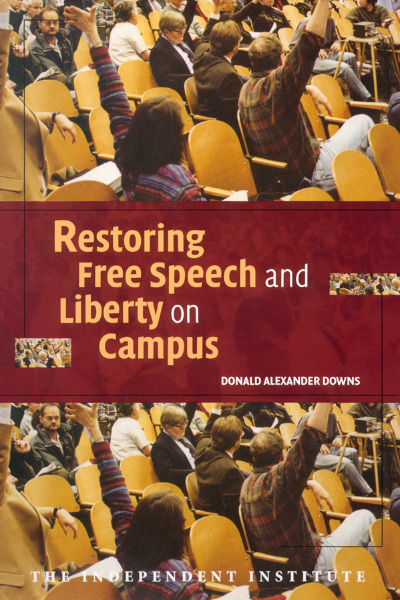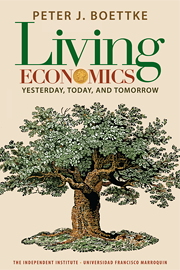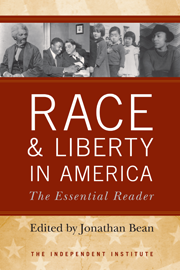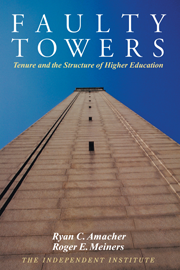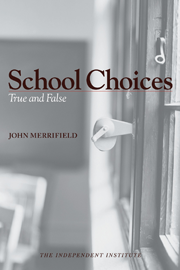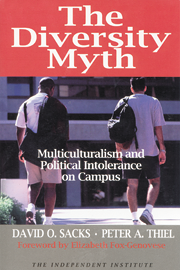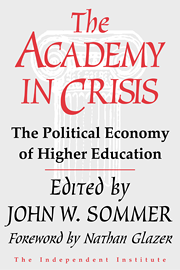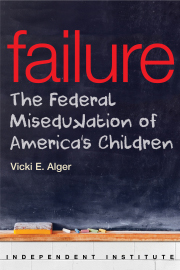| List Price: | ||
| Price: | $23.10 | |
| Discount: | $9.90 (Save 30%) |
| List Price: | ||
| Price: | $23.10 | |
| Discount: | $9.90 (Save 30%) |
Overview
The politically correct deprivation of free speech, due process, and other basic civil liberties in American higher education counteracts the truth-seeking mission of universities. Rather than promoting equal respect and tolerance of diversity, these policies have proved divisive and compromised the exchange of ideas. What must be done to reverse this trend? Drawing on personal experience as well as in-depth research, Downs analyzes the origins and development of the problem at four leading universities (Berkeley, Columbia, Wisconsin and Penn) and the effectiveness of conscientious political resistance by faculty and students in renewing the principles of free speech and civil liberty.
Contents
-
Introduction and Background
- Chapter 1: The return of the proprietary university and the new politics of free speech and civil liberty
- Chapter 2: Background: the rise of anti-free speech and liberty ideologies
- Chapter 3: Columbia’s sexual misconduct policy: civil liberty vs. solidarity
- Chapter 4: Berkeley and the rise of the anti-free speech movement
- Chapter 5: Undue process at Penn
- Chapter 6: Renewal: the rise of the free speech movement at Wisconsin
- Chapter 7: Abolition in the Wisconsin faculty senate and its aftermath
- Chapter 8: Some conclusions concerning civil liberty and political strategy.
Index
Detailed Summary
- Principles of academic freedom are crucial to the success of liberal education and constitutional democracy. These include freedom of speech, freedom of inquiry, and due process and equal protection in the adjudication of discipline. Although such principles are universally recognized as central to the university's mission, history has witnessed several lapses, such as during the Red Scare after World War I and the McCarthy era in the 1950s. Historically, the threats to the principles of academic freedom have come from outside the university, and from the Right.
- A new period of repression has arisen since the late 1980s, with the rise of “progressive censorship,” or censorship in the name of promoting progressive goals, such as diversity and sensitivity concerning matters of race, gender, and sexual orientation. Though these ends are worthy, the means universities have chosen to promote these goals—speech codes, broad anti-harassment codes, and unequal application and selective enforcement of university rules—have often had illiberal consequences, violating all of the principles of academic freedom. Intellectual diversity and freedom are casualties of the era of speech codes and progressive censorship.
- Many books have addressed the legal and normative problems caused by political correctness and progressive censorship, but none has fully considered a distinctive political aspect of the problem: the absence of political mobilization by individuals and groups dedicated to the principles of academic freedom.
- Restoring Free Speech and Liberty on Campus fills this void. Although author Donald A. Downs deals with broader aspects of the problem (the importance of academic freedom and liberty principles per se, historical and institutional perspectives, legal and philosophical developments), his primary concern is to show how the presence or absence of political organization and mobilization make a difference in the status of academic freedom principles at universities. Downs deals with theories of political change and political strategies in the politics of civil liberty.
- Key civil liberty conflicts at the University of California at Berkeley and Columbia University provide examples of the failure to mobilize on behalf of the principles of academic freedom. At Berkeley, speech deemed politically incorrect has often been harassed and intimidated in the public forum, and student newspapers have often been stolen en masse. In one case, a publication's office was burglarized by opponents. In none of these cases has a strong mobilization risen to defend the principles of academic freedom. A similar problem arose when Columbia enacted a new policy of sexual misconduct that eliminated most meaningful due process protections for the accused. Campus leaders involved in making the policy acknowledged that the absence of any opposition was largely responsible for the one-sided policy that emerged.
- The University of Wisconsin and the University of Pennsylvania provide constructive counter-examples. Each of these schools enacted speech codes and related policies in the 1980s. But pro-academic freedom groups emerged at both schools in reaction to troubling applications of the codes. Employing a variety of political strategies, these groups were able to restore respect for the principles of academic freedom at their respective institutions. Commitment to these principles had not died at these schools, but needed to be reawakened by individuals and groups who were willing to stand up and defend them in the face of sometimes intense institutional and political pressure.
- Downs's case studies reveal the importance of political mobilization on behalf of the principles of academic freedom. The crisis of academic freedom is the product of a lack of education and commitment. If administrations are reluctant to undertake these important tasks, it is the responsibility of faculty and students (hopefully in alliance) to fill the void. The future course of higher education is at stake.
Beginning in the late 1980s, institutions of higher education in the United States began to look upon intellectual freedom as a threat rather than as an invaluable good. For the first time in American history, liberal principles of free speech and inquiry found themselves under attack from the Left for allegedly harming social justice and progress. Faculty, administrative, and student leaders began to view free speech and open discourse as a threat to such emergent university goals as diversity and sensitivity concerning matters of race, gender, and sexual orientation—at least when the discourse was considered hostile to reigning conceptions of these new agendas. Although diversity and sensitivity were legitimate goals, the methods used to pursue them were often illiberal and repressive.
By the end of the 1980s, such policies as speech codes, excessively broad anti-harassment codes, and compromises of due process and equal protection in adjudication had become commonplace in American universities. “Progressive censorship”—censorship in the name of progressive causes—became enfranchised at many institutions. Intellectual diversity and freedom were casualties. What effect has this movement had on the principles of academic freedom in higher education? What can explain why and how this surprising turn of events took place? And what can be done to restore a commitment to liberal principles of freedom on campus?
In Restoring Free Speech and Liberty on Campus, Donald Alexander Downs chronicles the rise of the new anti-free speech movement and—drawing on both research and firsthand experience—charts strategies for making universities once again bastions of free speech and open inquiry.
Free Speech and Its Discontents
Downs examines the key intellectual and political movements that influenced the rise of progressive censorship in the form of speech codes, broad anti-harassment codes, and similar rules. The latter analysis attempts to answer a puzzling question: just why did the advocates of progressive causes start viewing free speech and other basic constitutional principles as inimical to their causes? This attitude was something new under the historical sun. Downs discusses several intellectual movements, including strong versions of identity politics; various victimology ideologies; theories of speech and knowledge that equate discourse with power; and the rise of a “new class” of administrative elite beholden to the “triumph of the therapeutic.”
The key focus of Restoring Free Speech and Liberty on Campus, however, is political. It shows how political mobilization on the part of liberty advocates can indeed restore liberal principles of freedom to campuses that have undergone the transformation to the regime of speech codes. In making this analysis, Downs discusses various political and rhetorical strategies, as well as theories of political action.
Case Studies: Two Failures, Two Victories
Drawing on research as well as his own personal experience as a leader of a unique free speech and liberty movement of students and faculty at the University of Wisconsin, Madison, Downs reveals how the right kind of political organization and commitment can pressure universities to abolish repressive rules and restore their respect for free inquiry and discourse. In addition to examining universities nationwide, he focuses on four case studies that show the difference the right kind of politics can make: Wisconsin, Berkeley, Columbia University, and the University of Pennsylvania.
Two of the case studies show how the absence of political mobilization on behalf of liberty principles leaves these principles without recognition or support when campus political pressures run in the opposite direction. At Columbia, in 2000 the University Senate enacted a new sexual misconduct policy that eliminated most meaningful due process protections for the accused, largely because no organized pro-liberty voices existed to present the due process case. At Berkeley, for years the forces of progressive censorship have obstructed and intimidated unwanted conservative speakers in the public forum and engaged in improper acts (sometimes illegal) against student newspapers that have published pieces deemed hostile to certain progressive causes. Again, no organized opposition to these acts has arisen at the erstwhile home of the Free Speech Movement.
The University of Wisconsin, Madison, and the University of Pennsylvania present positive examples of constructive resistance and change. Wisconsin had previously taken pride in being a national pioneer in the pro-speech code movement under the leadership of former chancellor Donna Shalala. But a series of questionable applications of the faculty speech code led to the formation of a resistance movement—the Committee for Academic Freedom and Rights—which deployed a variety of strategies to revive free inquiry principles at the university. These strategies led to abolition of the faculty speech code by a Faculty Senate vote in 1999—an act virtually unprecedented in American higher education. With a politically astute infrastructure now in place, the Wisconsin movement won several other victories on the free speech and liberty front in subsequent years. In one such case, the movement successfully pressured the university to dismantle a campus-wide system of anonymous complaint boxes that had clear Orwellian implications. The movement has also given legal assistance to several individuals when their rights have been placed in jeopardy.
While pro-liberty students and a unique faculty organization led a group effort at Wisconsin, history professor Alan Kors and a small cohort that included physics professor Michael Cohen led a similar movement at Penn. In 1993, the Penn judicial system prosecuted a student for calling some noisy students “water buffaloes,” a term the system claimed violated the student speech code's prohibition of racist comments. But the term “water buffalo” was widely understood to have no racial meaning. Kors took up the cause of the prosecuted student, turning the case into a national showcase of the absurdities of political correctness run amok. Using the public reaction as leverage, Kors was able to use the case to promote significant institutional change at Penn, including the abolition of the student code. Penn and Wisconsin stand as exceptional cases in the new politics of civil liberty on campus.
Civil Liberty and Political Strategy
Academic freedom principles will not survive in today's campus environment unless individuals and groups stand up to promote and protect these values in the face of often intense pressure. To prevail in the struggle for free speech on campus, advocates of liberty must be willing to take what may be an unpopular stand and make the principled defense of liberty part of their agenda. In addition to understanding the issues at stake, recognizing when violations occur, and committing to action, they must also possess the skills needed for successful activism. These include enlisting the support of others and networking with like-minded people, as well as winning the battle of “naming” the conflict (one reason the free speech movement at Wisconsin succeeded was because the students' speech code was commonly called a “speech code”).
There is nothing wrong with the university promoting a broader, more substantive concept of civility, but it must pursue such a worthy agenda informally, through the example of its own conduct, through the nourishment of informal networks of mutual respect and support, and by their public advocacy of tolerance and civility. (Punitive codes must not be “speech codes”; they should be limited to forms of expression closely linked to illegal action, and which have traditionally been the subject of prohibition.)
Universities need to be educated in the principles of freedom and political courage; they must become better at promoting tolerance of diverse opinion, including the opinion that dissents from the university's preferred agenda or the agendas of preferred groups. Thus far, universities have not done a good job performing what is admittedly a delicate balancing act. They will not do so until they begin to take the principles of liberal individualism and freedom seriously once again.
Praise
“This is an exciting and provocative work, and an important contribution to the literature on academic freedom and university politics. Readers will not always agree with the author’s take on hate speech and related issues, but his arguments are well reasoned and should not be ignored. Beyond its focus on academic freedom issues, this is a timely exploration of America’s cultural divide.”
—Joel B. Grossman, Professor of Political Science, Johns Hopkins University
“Restoring Free Speech and Liberty on Campus, the product of considerable scholarship, is unequivocal in the positions it holds. Most of all, it is thought provoking and challenging. Agreement with all of Down's conclusions is neither important nor necessary, but this book needs to be read, discussed, and debated and, as a profession we need to be mindful of his perspective. It is a book that should find its way on the reading lists of those who in any way are engaged in the political, cultural, and social issues that so often frame campus life.”
—Journal of College Student Development
“Grounded in case studies of Columbia, Berkeley, the University of Pennsylvania, and the University of Wisconsin, Downs's book is all the more devastating for the measure and scrupulousness with which he makes his case. Downs exposes rampant administration self-righteousness and faculty fecklessness in the face of university disciplinary proceedings that dispense with or trample on the most basic elements of procedural fairness. But his tale is also an inspiring one, chronicling the power of a few brave faculty members and students to stand up to the censors, to mobilize support on campus and off, and to defeat the forces that threaten the university from within. There will be no cure for what ails our universities, Downs convincingly demonstrates, until they become bastions of free speech and liberty.”
—Policy Review
“At the very core of all our rights and liberties is the First Amendment. One of the places it has been most endangered is the American college and university campus. The story of how Donald Downs restored it so vibrantly against considerable odds is downright inspiring and, I hope, infectious.”
—Nat Hentoff, Author and Columnist, The Village Voice
“Free expression on college and university campuses has undergone remarkable change since the early 1960s. . . . In his recent book, Restoring Free Speech and Liberty on Campus, Donald Alexander Downs provides a detailed, critical, and ultimately condemning portrayal of this trend toward enacting speech-restrictive policies on American college campuses. College campuses
have enacted campus speech codes designed to curb offensive expression which offends on the basis of race, sex, sexual orientation, particularly
religion, or other ascriptive human traits. In addition, colleges and universities have adopted orientation programs that train students, faculty, and staff to exercise tolerance, respect, and civility toward others during their interactions. Finally, institutions have narrowed the procedural rights afforded during campus judicial hearings to individuals being disciplined for allegedly violating speech codes. Increasingly, disciplinary boards have begun to presume the guilt of those charged with violating speech codes, and have denied such fundamental procedural rights as the right to be represented by a lawyer and the right to hear and ask questions of witnesses providing testimony. . . . Downs strongly contends that colleges and universities should provide individuals with the liberty to express ideas and views about all topics. This is essential, he explains, if colleges and universities are to successfully promote their fundamental mission of promoting humanity's search for the truth. This pursuit will be jeopardized if individuals are cowed by speech codes into remaining silent, or are induced to articulate their support for ideas in which they do not believe because such views are deemed safe. Indeed, Downs argues that this tendency toward the expression of false preferences is potentially worse than not speaking at all, because it will bolster the ideological status quo on university campuses, and thus further entrench the power of those who support speech-restrictive codes.”
—Political Science Quarterly
“One does not have to agree with all of Downs's characterizations or conclusions to appreciate that this book is an indispensable resource to anyone seriously interested in understanding the campus code controversy or, more importantly, the culture of the contemporary American university.”
—James Weinstein, Professor of Law, Arizona State University; author, Hate Speech, Pornography and the Radical Attack on Free Speech Doctrine
“Donald Downs's Restoring Free Speech and Liberty on Campus is an important book. Like his earlier books, it integrates political theory, jurisprudence, and policy analysis to address a matter of contemporary concern. In this case, the matter at hand is directly relevant to all scholars and teachers who work in the contemporary American university. . . . The stated themes of Donald Downs's book are ones with which most readers of this journal will be sympathetic: Intellectual freedom is the most important commodity academics have; it is under siege on a variety of fronts; some of these fronts might appear innocent but are often only the thin edge of the wedge; and faculty must recognize these threats and organize themselves to resist. This is a timely reminder, for there are many threats to academic freedom facing us today. . . . What Downs actually demonstrates, in his case studies, is that university administrators typically do not have strong convictions and tend to follow the path of least resistance. Faculty members tend to be preoccupied with their own work and not very engaged by debates about standards for the campus in general. So activists tend to have a highly disproportionate impact, whether they are arguing for wider freedom or tighter inhibitions. In other words, 'the academic community' is not, in fact, a very strong community, and so it is easily prodded or bullied by small elements in its midst. . . . This is a very good and very useful book. It is right in its conclusions and passionate in its convictions.”
—Perspectives on Politics
“Puts coercive political correctness under the microscope as no previous book has done, and discovers not only why it is virulent but how to make antibodies. Real intellectual diversity—and thus the American university itself—has no better friend, anywhere, than Donald Downs.”
—Jonathan Rauch, Columnist, Atlantic Monthly
“An important contribution to the never-ending real-world struggles to maintain free speech on campus. Should be read by anyone interested in the status of higher education, the fate of constitutional citizenship, [and] the politics of civil liberty.”
—Nadine Strossen, former President, American Civil Liberties Union
“[T]he challenge posed by Restoring Free Speech and Liberty on Campus for an AAUP reader is that its critique is not entirely without merit, and the values it endorses—of free speech and open contests about ideas—are ones we share. Moreover, the examples they cite of censorship and harsh treatment of 'offenders' whose guilt has never been established are worthy of condemnation. This book is at once useful and disturbing. It is useful as a reminder of the importance of free speech and as a corrective to tendencies to minimize or deny it on university campuses. Orthodoxies of any kind are dangerous to the mission of the university, which is to produce new knowledge through critical examination, contested interpretation, and wide exploration. Downs's book demonstrates the need for action against orthodoxy.”
—Academe
“In On Liberty, John Stuart Mill articulated the role of debate in an open society. Silencing an opinion—any opinion—whether done by government regulation, majority fiat, or social pressure, is inimical to the production of truth. . . . However, as Donald Downs reports in Restoring Free Speech and Liberty on Campus, college students are as likely to suffer Mill’s peculiar evil as they are to be provided a place where opinions are allowed to collide. Down’s book tells us how speech codes, broad anti-harassment policies, and adjudicative procedures aimed at student and faculty misconduct, though instituted in the name of progressive reform, have worked to undermine free speech and civil liberty. . . . Restoring Free Speech and Liberty on Campus is no polemic, however. . . . Downs effectively categorizes the harms that speech codes cause: their tendency to inculcate censorship in speech and thought at the very point in life when we are trying to figure out what we really think as well as the assumption inherent in the diversity movement’s victim ideology, which treats minorities ‘as inherently incapable of handling the rigors of open discourse.’ . . . In the end, the reason why Restoring Free Speech and Liberty on Campus leaves one with hope rather then despair is that, despite the obstacles that administrators and intolerant classmates put before them, most students still manage to learn.”
—The Federal Lawyer
“It is now widely feared that the campus as a free-speech haven is a thing of the past: Between the day-to-day impositions of stifling political correctness and the draconian "speech codes" that afflict students at some universities, the ivied halls seem to be less robust arenas of debate than is society as a whole. But Donald Alexander Downs, in his important new book Restoring Free Speech and Liberty on Campus, says there's cause for hope. Downs, a professor of political science at the University of Wisconsin, Madison--and a research fellow at the Independent Institute--documents the difference campus activism itself can make in the struggle for free speech. At the University of Pennsylvania, intellectual historian Alan Charles Kors helped spark a successful movement to scrap the institution's speech code; Downs himself was a key player in a similar effort at Madison. ‘Freedom is not manna from heaven,’ he writes. ‘Someone or some group must be willing to stand up and protect it when it comes under fire.... Individuals matter.’”
—National Review
“The growing prevalence of politically correct ‘speech codes’ on college campuses - sometimes called anti-harassment policies or sexual conduct codes, which sought to prevent certain designated minorities from ever feeling offended—has been the subject of much commentary the past 15 years. Jonathan Rauch's 1993 book, ‘Kindly Inquisitors,’ is the now-classic work describing the phenomenon. Donald Alexander Downs' new volume, Restoring Free Speech and Liberty on Campus, tells how the trend can be reversed. Restoring Free Speech and Liberty on Campus tells how he and a few colleagues prevailed at Wisconsin—and how the struggle fares at places where battles have raged, including University of Pennsylvania, Columbia and UC Berkeley. In addition, Downs explains how universities, most of which were at least rhetorically and for the most part sincerely committed to the fearless, open inquiry made possible by academic freedom, became places where certain kinds of speech and the expression of certain ideas became subject to punishment. . . . To overturn speech codes requires that a few students and faculty members be willing to stick their necks out and endure hostility, and a trans-political coalition. Conservatives haven't been able to do it alone; some civil-libertarian liberals seem to be a necessity. Speech codes, inimical as they are to the traditional mission of a university, can be defeated, but it is likely to be tough sledding.”
—Orange County Register
“Restoring Free Speech and Liberty on Campus is compelling reading, and somewhat chilling, looking in hindsight at what for the most part good-intentioned people can do to something as seemingly unassailable in this country as free expression. It is also an optimistic book, for whose who believe in the right of free speech. . . . Downs notes in the book that free speech is once again under attack - mostly from the right this time, as part of the so-called war on terror. True enough. But what his book really shows is that the politics of the oppressor matter less than always staying diligent in the cause of liberty.”
—The Capital Times, Madison, Wisconsin
“An estimated 700 U.S. colleges and universities have campus speech codes--rules about how students and faculty members can speak to one another. Campuses started adopting such codes in the early 1980s, explains Donald Alexander Downs, a professor of political science, law and journalism at the University of Wisconsin, Madison. Downs, who also is a Research Fellow with the Independent Institute, notes that the speech code movement followed the push in the 1970s and early 1980s for more diversity on campus. Administrators saw the need to monitor communication as more students and faculty from different minority groups and walks of life started encountering each other. It may have seemed a good idea, but it was a bad move, says Downs in his book, Restoring Free Speech and Liberty on Campus. Civility, while always a worthy goal, cannot be legislated. And while an offensive remark may be hurtful, it isn't always illegal.”
—University Business
Author
Donald A. Downs is Professor of Political Science, Law, and Journalism at the University of Wisconsin, Madison. As President of the Committee for Academic Freedom and Rights at the university, he has been a leader in the free speech and civil liberty movement in academia. He has also consulted with numerous organizations and universities about free speech and academic freedom issues.
Awards
2006 Peter Shaw Memorial Award (National Association of Scholars)
- Winner
2013 Jeane J. Kirkpatrick Academic Freedom Award (Lynde and Harry Bradley Foundation)
- Winner
2014 Hilldale Award in the Social Studies (University of Wisconsin)
- Winner

